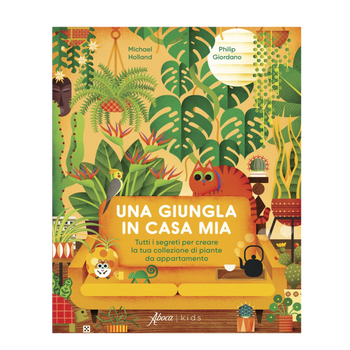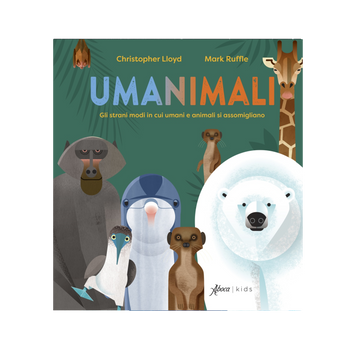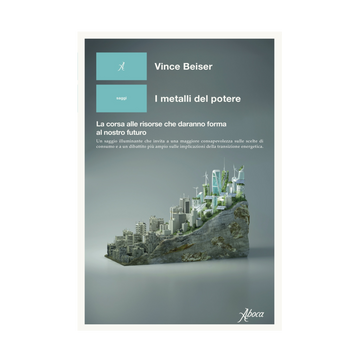You have no items in your shopping cart.
Riduzionismo e complessità: ritrovare l’umano, umanizzare la cura Riduzionismo e complessità: ritrovare l’umano, umanizzare la cura
Luigi Alici, Silvia Pierosara Luigi Alici, Silvia Pierosara
€24,00
Availability:
In Stock
Sku: LIBRIDCOM
ISBN/EAN: 9788855231541
The relationship between technology and life has always been difficult: life is a whole, irreducible to the sum of its parts; science and technology, on the other hand, derive from a method that isolates and circumscribes. Life is synthesis, science is analysis; life envelops and transcends us, science is grounded in a methodical difference between subject and object. The theory and practice of care, not only in their broader sense but also in a narrower one, are like two shores that must be bridged, even when the distance between them seems unbridgeable at first.
The essays in this book, which were discussed at the "Colloqui di etica" (Ethics Colloquia), organised by the University of Macerata, examine the possibility of reconciling the fragility of life with the responsibility of care. The problem goes far back and is related to the fact that "the human body is both the flesh of a personal being and the object of an investigation that is observable in nature" (P. Ricoeur).
The practice of care, in a virtuous circle of caring for and being cared for, raises questions about the meaning and value of life, a perpetual state of flux between health and illness, as well as the nature and boundaries of knowledge, particularly in the biomedical sciences, with their dependence on biotechnological devices.
This gives rise to a continual pendulum between reductionism and complexity, which requires an uneasy synthesis of art's behaviour and technology's practice; between the decision-making process, which is perhaps the apex of unavoidable responsibility when faced with a wounded person, and the technical apparatus, which is capable of providing answers that are only as reliable as they are circumscribed. In recognition of the complexity of the subject, medical and philosophical expertise is brought together in a book that takes an interdisciplinary approach to yield particularly interesting and original results.
Luigi Alici is Professor Emeritus of Moral Philosophy at the University of Macerata, where he directed the "G. Leopardi" School of Advanced Studies. His main areas of research originate from a re-reading of Augustinian thought in the light of contemporary thought, and concern the themes of personal identity, fragility and care. His latest research investigates the relationship between nature, technology and freedom, which is the subject of the book Liberi tutti. Il bene, la vita, i legami (Vita e Pensiero, forthcoming).
Silvia Pierosara is a researcher at the University of Macerata, where she teaches History of Moral Philosophy and Theories of Justice. She has dealt with a number of issues in contemporary ethics, exploring the link between recognition and narration from different perspectives. Recently, she has focused on a reinterpretation of autonomy in terms of relationships, to which she dedicated the book Autonomia in relazione. Attraverso l'etica contemporanea (Mimesis, 2021).
The relationship between technology and life has always been difficult: life is a whole, irreducible to the sum of its parts; science and technology, on the other hand, derive from a method that isolates and circumscribes. Life is synthesis, science is analysis; life envelops and transcends us, science is grounded in a methodical difference between subject and object. The theory and practice of care, not only in their broader sense but also in a narrower one, are like two shores that must be bridged, even when the distance between them seems unbridgeable at first.
The essays in this book, which were discussed at the "Colloqui di etica" (Ethics Colloquia), organised by the University of Macerata, examine the possibility of reconciling the fragility of life with the responsibility of care. The problem goes far back and is related to the fact that "the human body is both the flesh of a personal being and the object of an investigation that is observable in nature" (P. Ricoeur).
The practice of care, in a virtuous circle of caring for and being cared for, raises questions about the meaning and value of life, a perpetual state of flux between health and illness, as well as the nature and boundaries of knowledge, particularly in the biomedical sciences, with their dependence on biotechnological devices.
This gives rise to a continual pendulum between reductionism and complexity, which requires an uneasy synthesis of art's behaviour and technology's practice; between the decision-making process, which is perhaps the apex of unavoidable responsibility when faced with a wounded person, and the technical apparatus, which is capable of providing answers that are only as reliable as they are circumscribed. In recognition of the complexity of the subject, medical and philosophical expertise is brought together in a book that takes an interdisciplinary approach to yield particularly interesting and original results.
Luigi Alici is Professor Emeritus of Moral Philosophy at the University of Macerata, where he directed the "G. Leopardi" School of Advanced Studies. His main areas of research originate from a re-reading of Augustinian thought in the light of contemporary thought, and concern the themes of personal identity, fragility and care. His latest research investigates the relationship between nature, technology and freedom, which is the subject of the book Liberi tutti. Il bene, la vita, i legami (Vita e Pensiero, forthcoming).
Silvia Pierosara is a researcher at the University of Macerata, where she teaches History of Moral Philosophy and Theories of Justice. She has dealt with a number of issues in contemporary ethics, exploring the link between recognition and narration from different perspectives. Recently, she has focused on a reinterpretation of autonomy in terms of relationships, to which she dedicated the book Autonomia in relazione. Attraverso l'etica contemporanea (Mimesis, 2021).
Release date 2022
Dimensions cm 14 x 21,5
Pages 240
Release date 2022
Dimensions cm 14 x 21,5
Pages 240












